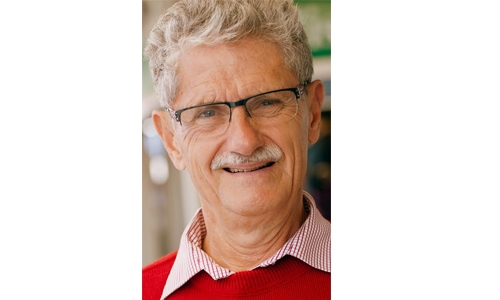Who should lead the United Nations?
This year, the United Nations will choose its next Secretary-General. We need the best possible candidate for the job.
It is often spoken of as the most impossible job in the world.
And given the files that the next United Nations Secretary-General will take over on 1 January 2017, it is easy to see why: appalling conflicts and human suffering in parts of the Middle East, Africa and Europe; violent extremism that is threatening us all; continued discrimination against women and girls; a worrying rise in xenophobia; over 800 million people struggling to escape extreme poverty; close to 60 million displaced around the world; a unique window-of-opportunity to address Climate Change and the Sustainable Development Goals before it is too late; and an Organization that needs to adapt to the challenges and new Goals the world is facing.
In its 70 year history, the UN, for all its flaws, has demonstrated that it can rise to such challenges. But to do so today, it must secure the best possible candidate through this year’s process of selection and appointment of the next Secretary-General.
One might think, therefore, that the process for choosing the Secretary-General would be as vigorous, inclusive and transparent as possible. But to date this has not been the case.
Previously, there has been no clarity on when the selection process actually started or, somewhat unbelievably, who was actually running for the job. Also, there has been no formal job description and no real opportunity for substantive and open engagement with the candidates – neither for the full UN membership nor the public.
The result: Recommendations negotiated behind closed doors – primarily by the five permanent members of the Security Council; eight Secretaries-General, not one of whom has been female; and a mostly symbolic appointment by the UN General Assembly.
The UN Charter is clear on the respective roles of the Security Council and the General Assembly in the selection and appointment process and it must be adhered to.
But recent changes to the process itself, agreed to by all 193 members of the General Assembly, provide us with a genuine opportunity to make it more transparent, more robust, more inclusive and ultimately, more effective.
Last December, the President of the Security Council and I set the selection process in motion by issuing a call for candidates to be presented as early as possible. We outlined the central features of the process. We pointed out some of the key criteria for the position and, in light of seven decades of male dominance, we encouraged member states to present both female and male candidates.
To date, seven candidates have been presented and their biographies and related information are now publicly available on my website.
Each candidate is expected to prepare a vision statement on the challenges and opportunities facing the UN and the next Secretary-General. They will present themselves for two-hours of questions from the full UN membership as well as from civil society and each dialogue will be streamed live online. The dialogues will continue with new candidates until the Security Council makes its recommendation.
Of course, these innovations will not directly transform our world and discussions continue on issues such as the length and renewability of the Secretary-General’s term and whether the General Assembly should vote on an appointment or not.
But they do have the potential to establish a new standard of transparency and inclusivity in international affairs. Given the global challenges we face today, this could be a real game-changer. So, please, go online, participate on social media, make yourself heard and help us find the best possible candidate for UN Secretary-General, that our world needs.
The author is the President of the 70th session of the UN General Assembly
Related Posts

